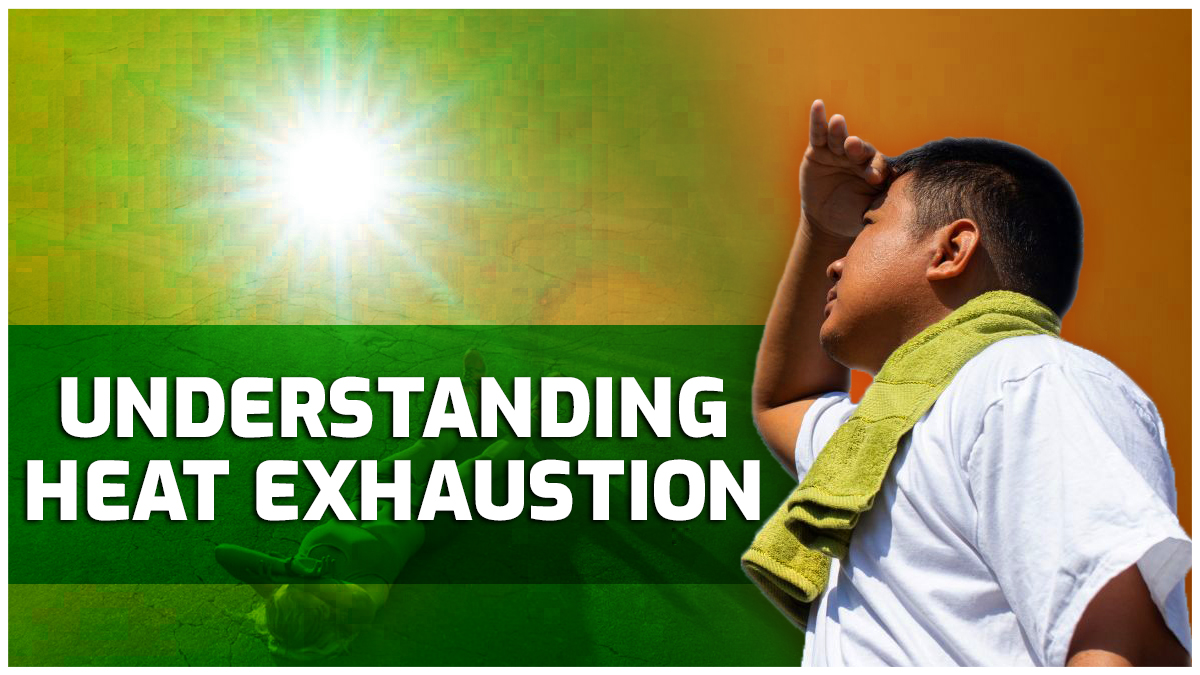In the scorching heat of summer, it's crucial to stay informed about heat-related illnesses, especially heat exhaustion. This condition can affect anyone exposed to high temperatures and excessive heat.
In this informative article , we will look into what heat exhaustion is, its symptoms, effective treatment methods, and how it differs from the more severe heat stroke.
What Is Heat Exhaustion?
Heat exhaustion is an illness that occurs when the body overheats due to being exposed to high temperatures for long periods of time and poor intake of water. It is less severe than heat stroke but should be taken seriously. Heat exhaustion can lead to heat stroke if it's not managed properly.
Symptoms of Heat Exhaustion
Recognizing the symptoms of heat exhaustion helps in taking measures promptly to manage it. Common signs and symptoms of heat exhaustion include:
- Excessive Sweating
One of the main symptoms of heat exhaustion is excessive sweating. The body attempts to cool down by releasing more sweat, but it can lead to dehydration.
- Weakness and Fatigue
Feeling weak and tired, both physically and mentally, is another common indicator of heat exhaustion. You may find it challenging to perform even mundane everyday tasks.
- Dizziness and Fainting
Heat exhaustion can cause dizziness and may lead to fainting or near-fainting episodes. This is a result of irregular blood flow due to dehydration.
- Rapid Pulse
An elevated heart rate is often observed in individuals experiencing heat exhaustion. Your pulse may become rapid as your body attempts to cool down.
- Muscle Cramps
Heat-induced muscle cramps, particularly in the legs and abdomen, are another symptom of heat exhaustion that can be painful and discomforting.
- Headache
Persistent headaches are a common symptom of heat exhaustion, often accompanied by feelings of confusion.
- Nausea and Vomiting
Heat exhaustion can upset the digestive system, leading to nausea and, in severe cases, vomiting.
Heat Exhaustion Treatment
Proper treatment for heat exhaustion is essential to prevent it from progressing to heat stroke. Here are steps to take if you or someone you know is experiencing heat exhaustion:
- Move to a Cool Place
Immediately get out of the sun and into a shaded or air-conditioned area. Reducing exposure to high temperatures is crucial.
- Hydrate
Drink water or oral rehydration solution(ORS) to rehydrate your body. Avoid alcohol and caffeine, as they can worsen dehydration.
- Rest
Lie down and rest to help your body cool down naturally. Lift your legs up to improve blood flow.
- Cool Down
Apply cool, damp clothes to your skin or take a cool shower to lower your body temperature. Using fans can also help.
- Loosen Clothing
Wear loose-fitting and lightweight clothing to facilitate the body's cooling process.
- Monitor Symptoms
Keep an eye on your symptoms. If they worsen or don't improve within 30 minutes, seek medical attention immediately.
Heat Stroke vs. Heat Exhaustion
While heat exhaustion and heat stroke share similarities, they are distinct conditions with different levels of severity. It's crucial to differentiate between the two:
Heat Exhaustion
Symptoms: Excessive sweating, weakness, dizziness, rapid pulse, muscle cramps, headache, nausea, and vomiting.
Treatment: Move to a cooler place, hydrate, rest, cool down, and monitor symptoms.
Prognosis: Typically not life-threatening if treated promptly.
Heat Stroke:
Symptoms: High body temperature (often exceeding 104°F or 40°C), confusion, rapid breathing, flushed skin, seizures, and unconsciousness.
Treatment: Requires immediate medical attention. Cooling measures are essential while waiting for help.
Prognosis: Potentially life-threatening; it can lead to organ damage or failure if not treated promptly.
In summary, heat exhaustion is a serious condition that can escalate into heat stroke if not managed properly. Heat stroke, on the other hand, is a medical emergency requiring immediate attention.
Conclusion
Heat exhaustion is a serious condition resulting from prolonged exposure to high temperatures that can escalate into heat stroke if not addressed promptly. Recognizing the symptoms and taking appropriate measures to cool down and rehydrate is essential. Heat stroke, on the other hand, is a medical emergency requiring immediate attention.
]]>


-(2).png)
Comments 0
No comments yet
Be the first to share your thoughts!
Leave a Comment